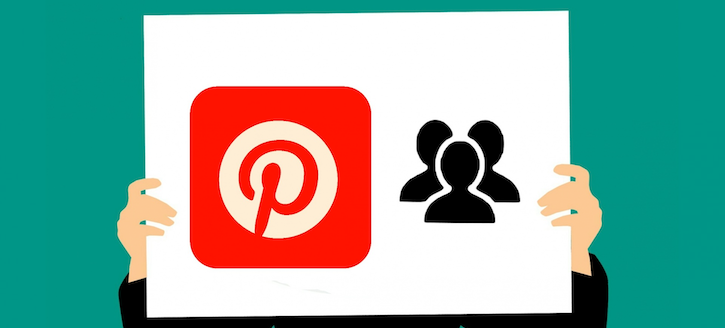Pinterest Might Help Patients Cope with Chronic Pain
Healthcare professionals could benefit from leveraging the platform to communicate high-quality information to chronic pain patients.

Thumbnail and image have been modified courtesy of CC0 Public Domain.
A new study conducted by researchers at Virginia Commonwealth University revealed that Pinterest provides social support and coping mechanisms for patients with chronic pain.
Just one week after the social media platform announced that it would be cracking down on the spread of misinformation by not returning results for searches related to vaccines, a study found that Pinterest is a tool that healthcare and public health organizations could leverage to distribute high-quality, reputably sourced information about chronic pain.
The study analyzed 502 Pinterest posts — referred to as pins — for chronic pain-related variables like health belief model constructs, measures of social support and coping mechanisms. The team selected the sample by taking each third pin for the keyword search “chronic pain.”
>> READ: Searching for ADHD in a Million Tweets
Pins were then coded for specific variables, including repins, likes, comments and total engagement. The pins were also coded for connected websites and visual type.
Most of the pins (98.6 percent) mentioned the high severity of pain and a third (33.9 percent) mentioned self-efficacy related to self-care. Almost half (43.8 percent) referred to cues of action related to self-care.
Of the sample, 21.9 percent of the pins mentioned a specific disease associated with chronic pain, with fibromyalgia being mentioned the most frequently (13.3 percent), followed by arthritis (6.4 percent).
Repins, likes, comments and total engagement frequencies were significantly higher in posts that mentioned a specific type of chronic pain compared to those that did not. And posts that mentioned tips on how to deal with chronic pain had significantly higher engagement frequencies than those that did not.
It was found that tips for chronic pain were present in 35.3 percent of the pins and tips for caregivers or friends were present in 17.9 percent of the sample.
Almost 41 percent of the posts expressed indicators of informational support, while 21.1 percent showed emotional support.
And close to half of the sample (47.4 percent) referred to a form of problem-focused coping. Close to 16 percent showed a presence of emotion-focused coping.
Though few benefits or barriers to chronic pain treatment were present in the sample, 32.9 percent expressed a high level of perceived benefit for self-care and 10 percent mentioned a high level of barriers to self-care.
While other social media platforms have been deeply studied — like Facebook, Twitter and Reddit — to view the impact on an individual’s mental health, Pinterest has been understudied.
None of the pins in the sample were posted by public health or other health-focused entities. But the results of this study show that there is a level of promise for the role of social support and coping on the Pinterest.
“This study positions Pinterest as a social media platform with the potential to both transfer knowledge and provide social support for patients with chronic pain,” the authors wrote.
Health communication and public health practitioners should consider participating in the conversations and providing reputable information on Pinterest, according to the authors. Healthcare professionals might be able to reach an even broader population through the platform.
“When you look at these Pinterest posts, you see people trying to manage pain and trying to help each other and provide support to each other,” said study lead Jeanine Guidry, Ph.D., assistant professor in the Richard T. Robertson School of Media and Culture. “That is something that could be turned into an effective tool for healthcare providers and for communicators.”
Get the best insights in healthcare analytics directly to your inbox.
Related
New App Uses 3D, Animations to Track Chronic Pain
There’s Plenty of Smoke, but Can Social Media Help People Quit?
Negative Social Media Interactions Associated with Depressive Symptoms
Podcast: Match Made in Hospitals — Patient-Matching Technology Can Improve Healthcare
September 21st 2021Clay Ritchey, CEO of Verato, highlights the administrative and financial benefits that patient-matching technology can provide hospitals and health systems, as well as how it can improve the patient experience.
Podcast: Using Digital Solutions to Address Technology Shortfalls with Citius Tech Senior VPs
July 29th 2021In an interview recorded earlier this year, Chief Healthcare Executive Associate Editorial Director Mary Caffrey spoke with 2 leaders of Citius Tech about meeting healthcare challenges with digital solutions.